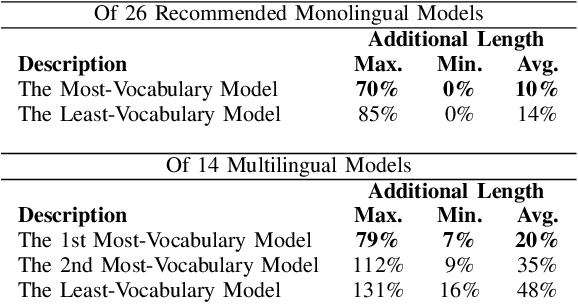Simple Hack for Transformers against Heavy Long-Text Classification on a Time- and Memory-Limited GPU Service
Paper and Code
Mar 19, 2024



Many NLP researchers rely on free computational services, such as Google Colab, to fine-tune their Transformer models, causing a limitation for hyperparameter optimization (HPO) in long-text classification due to the method having quadratic complexity and needing a bigger resource. In Indonesian, only a few works were found on long-text classification using Transformers. Most only use a small amount of data and do not report any HPO. In this study, using 18k news articles, we investigate which pretrained models are recommended to use based on the output length of the tokenizer. We then compare some hacks to shorten and enrich the sequences, which are the removals of stopwords, punctuation, low-frequency words, and recurring words. To get a fair comparison, we propose and run an efficient and dynamic HPO procedure that can be done gradually on a limited resource and does not require a long-running optimization library. Using the best hack found, we then compare 512, 256, and 128 tokens length. We find that removing stopwords while keeping punctuation and low-frequency words is the best hack. Some of our setups manage to outperform taking 512 first tokens using a smaller 128 or 256 first tokens which manage to represent the same information while requiring less computational resources. The findings could help developers to efficiently pursue optimal performance of the models using limited resources.
 Add to Chrome
Add to Chrome Add to Firefox
Add to Firefox Add to Edge
Add to Edge